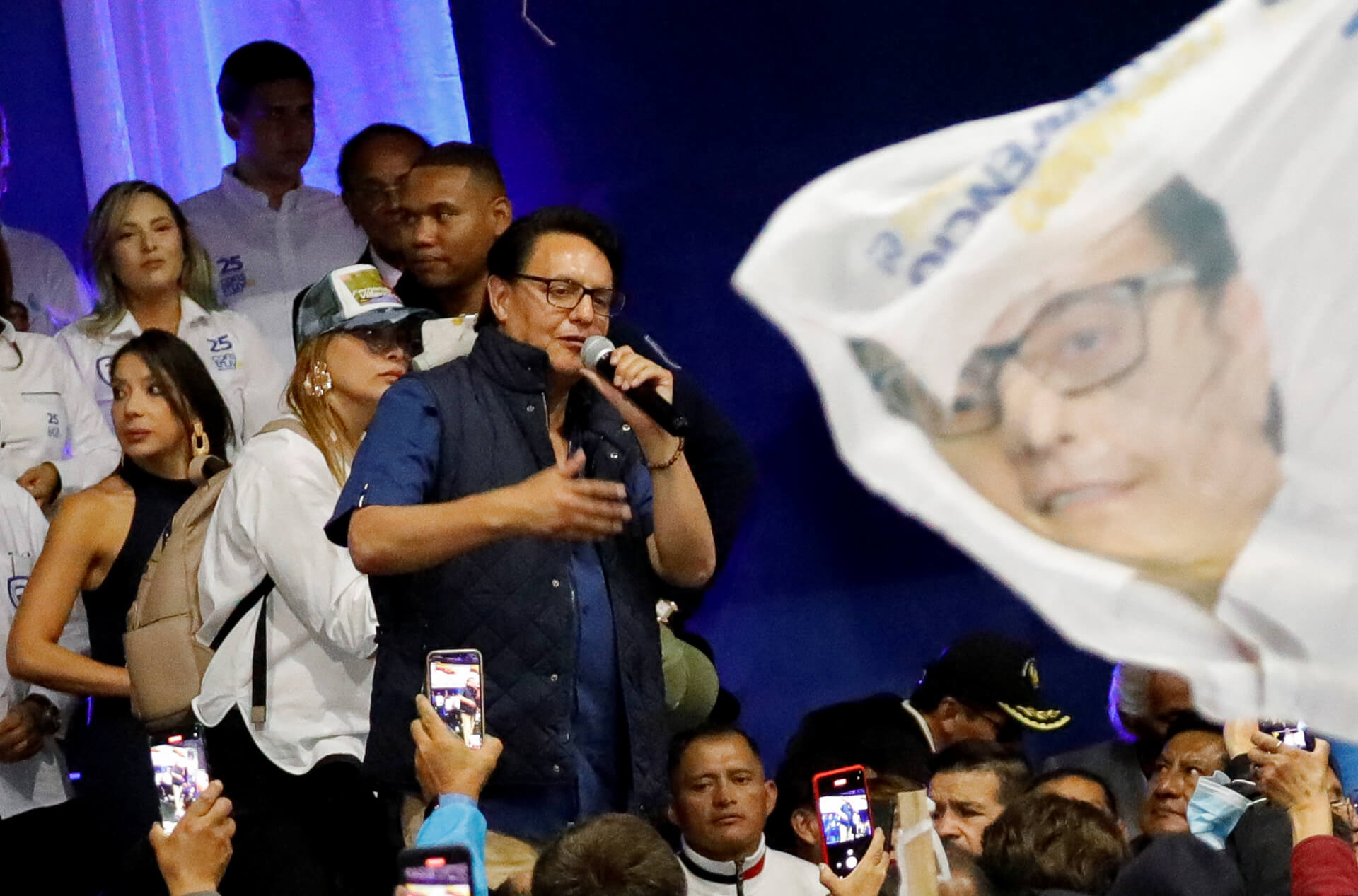Ecuadorian Presidential candidate Fernando Villavicencio was assassinated at an election rally in Quito on Wednesday.
President Guillermo Lasso confirmed that the politician was shot at and promised that the crime would not go unpunished.
Overview
Villavicencio, a 59-year-old right-wing politician, was one of the eight candidates in the running for the presidential election, and had received death threats before the shooting.
The footage of the incident circulating on social media shows Villavicencio walking out of the election rally event towards a white truck, surrounded by police officers and onlookers. Just as he gets in the back seat of his vehicle, gunshots can be heard.
The presidential candidate was known for raising his voice against cartels and corruption, and was one of the most stringent critics of former President Rafael Correa from 2007 to 2017.
Video footage captures moment Ecuadorian presidential candidate Fernando Villavicencio was shot dead following a campaign rally in the capital Quito.
— Al Jazeera English (@AJEnglish) August 10, 2023
The suspect in the killing died of injuries sustained during a shootout, say local police ⤵️ pic.twitter.com/7ZCEoTdBeL
The assassination comes less than two weeks before the presidential election, which is scheduled for 20 August.
Thirty shots were fired at the event, with bullets exchanged between the shooters and the police officers protecting the candidate. One of the suspects sustained injuries and later died while being transferred to a health facility.
During the attack, nine people were injured, including a candidate for the National Assembly and two police officers.
Six people have been detained concerning the incident during raids in Quito’s Conocoto and San Bartolo neighbourhoods.
A video circulating on social media has shown alleged members of criminal gang Los Lobos claiming responsibility for the attack.
Elections to Continue
Following the shooting, the incumbent president condemned the act and held that the incident “is a political crime that acquires a terrorist character.”
The National Electoral Council head Diana Atamaint said the elections would continue as planned. The early election process will remain unchanged, and the voting will take place on 20 August.
Ecuador presidential candidate shot dead at rally https://t.co/BPIhuSD0gd
— BBC News (World) (@BBCWorld) August 10, 2023
Three days of national mourning and a 60-day state of emergency throughout the country have been declared following the incident.
The government has also ordered the mobilisation of the armed forces throughout the national territory.
Reactions
Lasso remarked, “For his memory and his fight, I assure you that this crime will not remain unpunished. Organised crime has gone very far, but all the weight of the law will fall on them.”
Former President Rafael Correa also condemned the assassination of one of his most vigorous opponents and called Ecuador a “failed state.”
Mike Fitzpatrick, the US Ambassador to Ecuador, said, “I am deeply dismayed to learn of the assassination of Fernando Villavicencio, presidential candidate and fighter against the corruption and narco-criminals who have done so much damage to Ecuador.”
The Mexican Foreign Affairs Ministry also expressed solidarity with the Ecuadorian government and people.
Chile, Brazil, and Honduras joined in to condemn the assassination as well.
However, Spanish news influencer Eduardo Menoni questioned the silence of Latin American socialist presidents on the incident.
Han asesinado a Fernando Villavicencio. Ecuador se ha convertido en un Estado fallido.
— Rafael Correa (@MashiRafael) August 10, 2023
Dueles Patria.
Mi solidaridad con su familia y con todas las familias de las víctimas de la violencia.
Los que pretenden sembrar aún más odio con esta nueva tragedia, ojalá entiendan que…
Ecuador’s Security Situation
Ecuador struggles with a deteriorating security crisis fuelled by drug trafficking and rivalry between competing criminal organisations. The country has reported one of the highest homicide rates in the region in recent years.
Being sandwiched between Peru and Colombia, the world’s largest narcotics production hotspots, the country has become integral in the cocaine trafficking routes from South America to North America and Europe.

